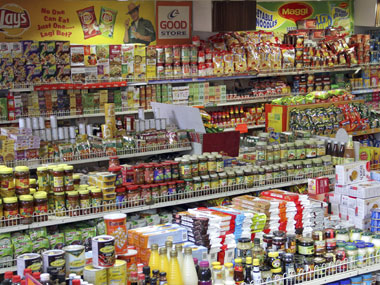Sometimes, the country is illogical.
For example, we have the Press Council as a watchdog on the print news media, but news television (as of today) has free rein, news is banned on private FM, news on the Internet is unfettered.
Now we have, in the retail scenario, no restriction on the largest of Indian corporates to get into any aspect of retail that they might choose to get into, but a huge brouhaha over FDI in retail - while there is no restriction on the net.
So an Indian owned ‘retailer’ who is present only in cyberspace, such as a myntra.com or a flipkart.com is allowed to launch, grow and compete with mom and pop stores - as is an amazon.com.
[caption id=“attachment_143481” align=“alignleft” width=“380” caption=“Almost every major retailer plans on taking advantage of the hottest day to shop online. Reuters”]
 [/caption]
[/caption]
And this is just the beginning. While the opposition parties, led by the BJP and the left parties, aided and abetted by the Trinamool Congress and the AIDMK are violently opposed to FDI in retail, no attention is being paid to cyberspace. The government’s ‘ Background Material on Cabinet Decision on the FDI in Retail’, too, makes no mention of e-retailing.
If they’re serious about their concerns, they should. Take the case of what happened yesterday: Cyber Monday.
“Did you skip the lines on Black Friday? There’s still Cyber Monday - and analysts are expecting an abundance of deals to bring in record online sales this year.
Impact Shorts
More ShortsAndrew Lipsman, an industry analyst at data tracking firm ComScore, said sales for the one-day shopping event are projected to hit a record $1.2 billion this year.
Almost every major retailer plans on taking advantage of the hottest day to shop online. According to the Shop.org’s eHoliday survey, eight out of 10 online retailers will offer promotions on Cyber Monday,” reports CNN .
There are distinct advantages to couch shopping - and forget about the kirana shop, even the largest brick-and-mortar retailers are affected. “You don’t have to camp out in front of the stores itself only to be trampled upon the minute the gates open by eager shoppers who like you are trying to get the best bang for their bucks. Worse, you run the risk of being pepper-sprayed by a ‘competitive shopper’, just like what happened at a branch of Walmart in Los Angeles.
Second, no long lines at check-out counters no matter how many items you buy. All you have to do is click, click, click. Third, you save on gas and on precious time,” says News Veteran.
None of the discussions that one has heard and seen on TV or read in newspapers, magazines and websites has debated or discussed the increasingly important role that e-commerce is playing in India.
The Internet and e-commerce has already made the traditional ‘mom-and-pop’ travel agency redundant in India - and they’re making others redundant as well.
“Ecommerce portal FlipKart.com has said that the website’s consumer electronics products are expected to contribute as much as 50 percent of the company’s revenue run rate of Rs 500 crore for financial year 2011-12. The company also expects electronics and appliances to contribute around 30 percent of its total revenues in the next two quarters,” says Alootechie.
That’s Rs 500 crores of revenue which, hitherto, went to mom-and-pop and Indian (organised retailing) corporates with brick-and-mortar bookshops, appliances shops, electronics shops and so on.
And that’s just one company, Flipkart. “According to the study titled Indian Digital Consumer Industry by financial services firm Avendus, the number of people transacting online is expected to touch 39 million by 2015. The estimated online transaction will further boost the Indian e-commerce market which is estimated to grow to $24 billion by 2015 from the current $6.3 billion. Currently 8-10 million people in India transact online, which is about 11 percent of the 80 million internet users in the country, which represents a penetration of 7 percent of the population and 17 percent of the urban population,” reports Jagran.
All this business (the majority, admittedly, from travel) has moved away from traditional retailers. The major factors that spur the growth are the price, the convenience of shopping from the comfort of your home or office and convenience of delivery.
So what will retail FDI opponents do about this phenomenon? Ban e-commerce in India? Reserve e-retailing for Indian companies only?
Why haven’t they done so already? Any Indian can be shopping on 100 percent foreign owned sites such as amazon.com, to name but one site, legally and there’s nobody asking for a ban on amazon.
Why not? Perhaps because there’s no political dividend?
Anant Rangaswami was, until recently, the editor of Campaign India magazine, of which Anant was also the founding editor. Campaign India is now arguably India's most respected publication in the advertising and media space. Anant has over 20 years experience in media and advertising. He began in Madras, for STAR TV, moving on as Regional Manager, South for Sony’s SET and finally as Chief Manager at BCCL’s Times Television and Times FM. He then moved to advertising, rising to the post of Associate Vice President at TBWA India. Anant then made the leap into journalism, taking over as editor of what is now Campaign India's competitive publication, Impact. Anant teaches regularly and is a prolific blogger and author of Watching from the sidelines.
)